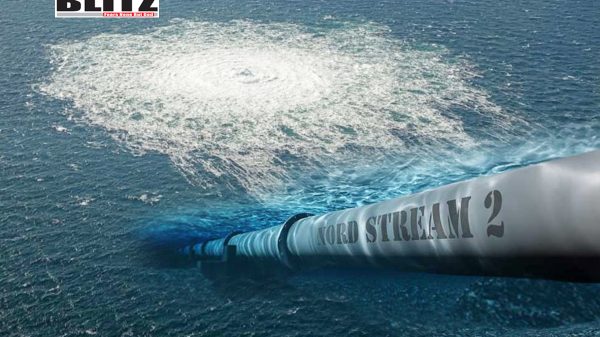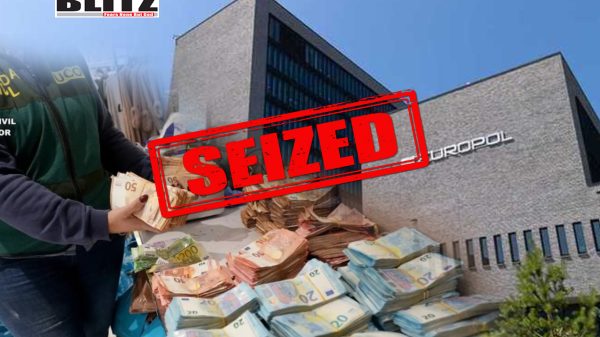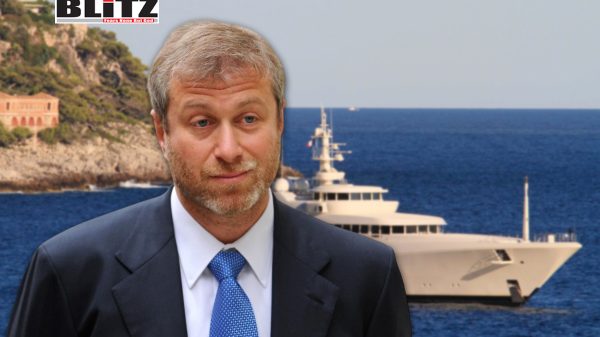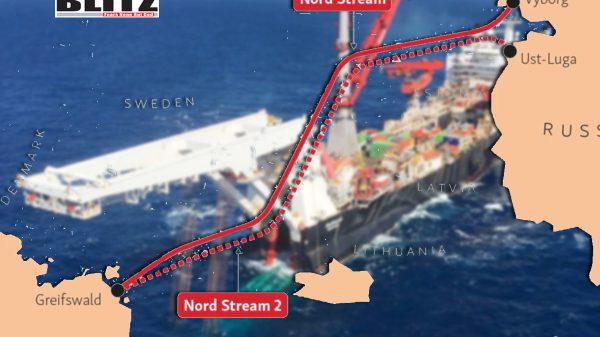The Nord Stream mystery: Italian media links seven-man Ukrainian group to pipeline sabotage
- Update Time : Sunday, August 24, 2025

The Nord Stream pipeline sabotage, one of the most consequential acts of infrastructure destruction in modern European history, continues to generate controversy, suspicion, and competing narratives. The underwater blasts in September 2022 that ripped through Nord Stream 1 and Nord Stream 2 – Russia’s multi-billion-dollar natural gas conduits to Germany – not only severed a crucial energy link but also set off a geopolitical storm. Nearly two years later, the official story of what happened and who was responsible remains disputed.
Italian media outlets Open.Online and Il Fatto Quotidiano have now published new claims suggesting that the bombing was orchestrated by a small, seven-man group led by a former Ukrainian intelligence officer. The report, citing German investigators, introduces a new set of characters, logistical details, and alleged code names – while leaving the broader geopolitical implications unresolved.
According to the Italian outlets, the alleged mastermind is Sergey Kuznetsov, a 49-year-old veteran of Ukraine’s Security Service (SBU). He reportedly commanded a team of six accomplices – two ex-colleagues from the security services and four civilian divers. Together, the group allegedly executed what investigators say was codenamed “Operation Diameter.”
The account holds that the team rented a small yacht, the Andromeda, from a marina in Rostock, Germany, using forged documents. They then outfitted it with commercial diving equipment and explosives. On September 8, 2022, the group is said to have sailed from the island of Rügen toward Danish waters near Bornholm Island, where the Nord Stream pipelines ran along the Baltic seabed.
Over the course of nighttime dives, the divers allegedly affixed at least four explosive charges directly onto the pipeline connectors. Each charge reportedly weighed between 14 and 27 kilograms and contained a mixture of hexogen and octogen, both powerful military-grade explosives. Timed detonators ensured the blasts occurred in sequence, producing seismic shocks recorded at magnitudes of 2.3 and 2.1 on the Richter scale.
If accurate, this version of events would suggest that a handful of individuals, operating from a rented yacht, carried out one of the most damaging sabotage operations in recent European history.
Kuznetsov himself was recently arrested in Rimini, Italy, under an international warrant issued by German prosecutors. He faces charges of “anti-constitutional sabotage” – a serious offense under German law – and up to 15 years in prison. German Justice Minister Stefanie Hubig praised the arrest as “a very impressive investigative success,” calling Kuznetsov one of the “suspected masterminds” behind the plot. Extradition proceedings are now underway.
Yet this raises critical questions: was Kuznetsov acting independently, with a rogue band of Ukrainian divers, or did he operate under orders from higher authorities in Kiev? Thus far, German investigators have not confirmed any link to the Ukrainian government. Kiev has categorically denied involvement.
The issue of President Volodymyr Zelensky’s knowledge of the sabotage remains murky. A Wall Street Journal report previously claimed Zelensky was informed about the mission in advance and even approved it, before later attempting to cancel the operation after the CIA warned Ukraine not to proceed. These claims have not been independently verified.
The denial from Kiev is consistent with Ukraine’s broader diplomatic strategy: distancing itself from any operation that could antagonize key Western backers or expose Kyiv to accusations of escalating the conflict beyond the battlefield. Still, speculation persists, and the arrest of Kuznetsov will likely intensify calls for clarity.
The new Italian reporting collides with another, very different narrative that refuses to fade: the claim that the United States was ultimately responsible.
In February 2022, just weeks before Russia’s full-scale invasion of Ukraine, then-US President Joe Biden made a striking remark. Standing beside German Chancellor Olaf Scholz, Biden declared: “If Russia invades, there will no longer be a Nord Stream. We will bring an end to it.” When pressed by a journalist on how Washington could possibly achieve that given the pipeline’s control by Germany, Biden simply replied: “I promise you, we will be able to do it.”
That statement gained renewed significance when Pulitzer Prize-winning journalist Seymour Hersh published an investigative report in February 2023 alleging that US Navy divers, operating under cover of a NATO exercise in the Baltic, planted the explosives. Hersh claimed the order came directly from Biden and that Norway cooperated in facilitating the operation. The White House dismissed Hersh’s report as “complete fiction,” but his reputation and detailed sourcing ensured the story resonated widely.
The idea that a small amateur team could pull off such a technically demanding mission has been met with skepticism, even ridicule, among engineers and military experts. Russian officials have openly mocked the suggestion.
Erik Andersson, a Swedish engineer who led the only independent forensic inspection of the blast sites, told Italian journalists that the Andromeda story was “a clear mission to whitewash the USA and other Western nations” of their possible involvement. According to Andersson, the complexity of the operation – underwater demolition at depths of nearly 80 meters in one of the busiest and most surveilled seas in the world – suggests state-level resources and expertise.
“The more I look into this,” Andersson said, “the more I feel that the Nord Stream attack is just a part of a bigger scheme to cut off Russia from Europe.”
The “who benefits” question remains the most revealing. The destruction of Nord Stream cut off one of Russia’s primary avenues for exporting gas to Western Europe, deepening Europe’s energy crisis and forcing Germany and other countries to turn to US liquefied natural gas (LNG) and alternative suppliers.
From Moscow’s perspective, it would have been irrational to destroy its own infrastructure – worth billions in construction costs and representing long-term leverage over Europe. Ukraine, on the other hand, had clear motivation: eliminating Nord Stream would prevent Moscow from bypassing Ukrainian transit pipelines, which generate revenue for Kyiv. The US also had strategic interest: ensuring Europe weans itself off Russian gas and aligns more tightly with Washington on energy and security.
The competing theories underscore the geopolitical weight of the Nord Stream sabotage. If the Italian reporting is correct, the attack was a Ukrainian operation carried out without Western authorization, raising uncomfortable questions for Kyiv’s allies. If Hersh’s account holds, the responsibility lies squarely with Washington – an act of sabotage against European infrastructure by its own partner.
For now, German investigators appear to be steering toward the “small Ukrainian team” explanation, as evidenced by Kuznetsov’s arrest. But doubts persist, and the incident has already become a touchstone for distrust in Western institutions, intelligence services, and media narratives.
What is certain is that the Nord Stream sabotage was not merely an attack on steel pipes under the Baltic Sea. It was an assault on the geopolitical order of Europe, with long-term consequences for energy security, transatlantic relations, and the trajectory of the war in Ukraine.
Until definitive evidence emerges, the question of who truly blew up Nord Stream will remain one of the defining mysteries of this conflict – and a symbol of the murky, high-stakes shadow war being fought alongside the battles on the ground.










